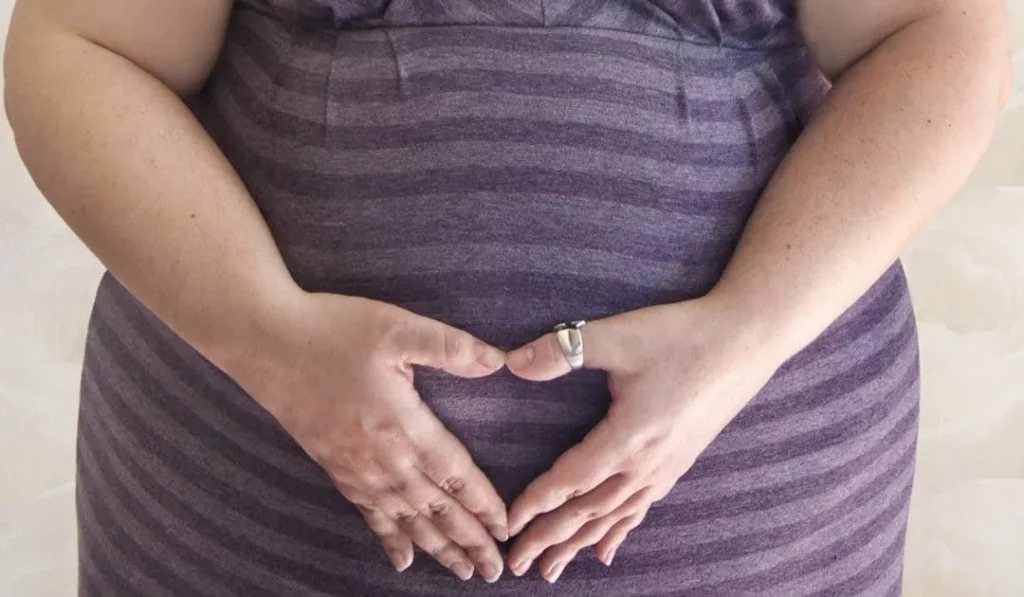What Is Miscarriage?
Contents
Miscarriage, also known as natural abortion and pregnancy loss, involves the death of an embryo or fetus before birth.
Most miscarriages about 80% happen in the 1st trimester of pregnancy, where pregnancy loss happens before 4.6 months (1)
The term miscarriage is only used when the fetus inside the womb death occurs before the 20th week of pregnancy.
Spontaneous abortion is the most common cause of pregnancy loss.
However, a study observed a much higher spreading of spontaneous miscarriage in Indian women about 32 %.
Around 15% of miscarriages are due to the wastage of the pregnancy means the pregnancy itself, and the eggs themselves are not of good quality.
When the egg is not of good quality, so the body naturally tries to refuse it and try to not let it grow.
Women may not realize they’re pregnant because the bleeding occurs around the time of their period cycle this is called a chemical pregnancy.
Types
There are the following types of miscarriage include:
- Missed miscarriage – when you lost the pregnancy, but are unaware of it, and have no signs of it.
- Complete – In this, you experience bleeding and pass fetal tissue.
- Recurrent – Where women have 2 or more miscarriages, it affects about 1% of couples.
- Threatened – In this, your cervix is close, but still, you have bleeding and pelvic cramping.
- Inevitable miscarriage – If you have to bleed, and cramping and your cervix are dilated, then it is considered an inevitable miscarriage.
Check Out – Why Am I Not Getting Pregnant? 10 Unexpected Reasons

Signs and Symptoms
Most miscarriages occur before the 12th week of pregnancy, even many women are not aware of having miscarriages.
There are several signs and symptoms of miscarriage that you can see which include:
- Vaginal bleeding with or without pain
- abdominal pain
- cramp
- blood clot and tissue-like material comes out of the vagina
- decrease in pregnancy symptoms
- sadness
- anxiety
- guilt may occur afterward when you realize the miscarriage
- low back pain that may be mild to severe
Bleeding can occur in early pregnancy which does not mean miscarrying.
If you saw blood clots, tissue-like material, and any discomfort that is not related to pregnancy, then consult your doctor.
Causes of Miscarriage
The most common and main cause of miscarriage is chromosomal abnormalities, but what is it?
Chromosomal disability is a disorder that causes irregularities in DNA when babies are made in the womb, such as extra or missing chromosomes.
Moreover, it is a tiny structure inside the cells of our body that carries genes.
Genes contain our DNA (it contains all the information necessary to build and maintain a body), and if genes don’t work properly can cause diseases.
However, there are several things that increase the of having a miscarriage but do not necessarily cause a miscarriage which includes:
- Age, women older than 35 age have a higher risk of miscarriage than young women.
- trimester
- certain medicines like – retinoids, statins, anti-inflammatory drugs, etc
- unhealthy lifestyle follow (3) (4)
- infection
- Being obese or underweight is associated with an increased risk of miscarriage.
- a previous case of miscarriage
- smoking and excessive alcohol consumption
- caffeine in higher amounts can raise certain circumstances that increase the chance of miscarriage
- medical issues like diabetes, thyroid, high blood pressure, heart, kidney, and liver diseases
- irregularities shaped in the uterus
- immune system disorders like lupus – which is also connected to the baby’s immune system
- surgery of the abdominal area
- nutrient deficiency is found that may impact pregnancy and somewhere leads to miscarriage with other issues.
- vaccination like the influenza vaccine, and rotavirus, however, there is no hard evidence found that life vaccination leads to miscarriage.
- radiation therapy treatment like in cancer
- chemical exposure
- morning sickness
- Cocaine use increases the rate of miscarriage
Abdominal and pelvic surgery. also, ovarian tumors and cysts removed surgery are not found that increases the risk of pregnancy loss.
Shift work is heavy lifting are also associated with an increased risk of miscarriage (5)
Several studies found that shifting work, lifting heavy weight, and hard physical work is associated with premature birth (6).
How Do Doctors Diagnose It?
There are several diagnose that your healthcare provider, first they may ask you about your sign and symptoms, like bleeding clots, etc.
Doctors can perform an ultrasound test to confirm a miscarriage, they check false heartbeat, the baby is not scrolling, etc (7)
They may also take your blood test to check your hCG level (human chorionic gonadotropin) a hormone produced by the placenta during pregnancy.
On other hand, trimesters are very important to find the cause of it.
First-trimester miscarriages are mostly due to chromosomal anomalies in the fetus (8)
In the second trimester due to an underlying condition in the mother, like issues with the placenta.
3rd-trimester infection around the baby causes the tearing of the bag of the membrane to retire even before pain and bleeding.
How To Confirm a Miscarriage At Home
You can see signs during the 1st, the 2nd, and 3rd trimesters, however, the death of a fetus only before 20 weeks is called a miscarriage.
False heartbeat, not stirring, heavy or different color of bleeding and relief in pregnancy symptoms may confirm a miscarriage.
However, these signs are not clear, if see any signs that should not occur or any discomfort, talk to your doctor (9)
What Treatment Are Available?

There are mainly three treatments available or best options in case of an incomplete miscarriage, empty sac, or missed abortion include:
Waiting
In this, most no treatments are required, where just waiting does happen, so that miscarriage will pass naturally on its own.
It takes several days or weeks and avoids any surgical treatment to prevent side effects and complications (10) (11)
However, if waiting to pass the tissue seen is not safe, then the tissue will be removed as soon as possible.
This option is only recommended if you miscarried before 10 weeks of pregnancy (12)
Medicines
It helps the uterus contract and expels the remaining tissue from the body, in 95% of cases its works within a few days (13).
Talk to the doctor if you are on any medication, because that medicine may interact with pregnancy.
Your healthcare provider may recommend inserting medication through your vagina, to decrease the risk of diarrhea, and other issues.
Surgery (D & C)
Your doctor may perform D & C (dilation and curettage) procedures, where tissue is removed from inside of your uterus.
This treatment is used in clears the excessive uterus lining (it raises the risk of developing cancer and abnormal bleeding) after a miscarriage (14)
However, D & C surgery has some risks (15) which include:
- Uterus bleeding
- small tear in the uterus
- infection
- may develop Asherman’s syndrome (a rare condition)
Asherman’s syndrome is a condition where scar tissue forms inside the uterus or cervix.
How Do We Prevent Miscarriage?
Prevention of miscarriage can sometimes be efficient to decrease the chance of it and other risk factors.
However, a majority of miscarriages cannot be prevented, but there are some things that you can do to prevent pregnancy loss including:
- Proper diet intake
- avoid smoking, and alcohol (any form of tobacco)
- obesity, so make sure to lose weight before pregnancy is very important
- avoid x-ray and any radion therapy
- taking folic acid supplements 2-3 months before pregnancy
- avoid, cocoine, excessive use of caffeine
- if you are on medication, then talk to your doctor before going to the pregnancy planning.
However, there are several other causes of pregnancy loss.
Tests for any medical condition like thyroid and sugar level should be treated before going pregnant.
Antiphospholipid syndrome is another condition that causes blood clots and causes recurrent heparin (an injection used to decrease the clotting ability of the blood)
Precautions After Miscarriage
When the bleeding stops, you may be able to continue with your normal activities, however, bleeding during miscarriage leads to weakness.
So after pregnancy loss, a woman should take care of herself through these tips are included:
- Take iron rich diet
- rest (but not a bed, and avoid heavy work)
- avoid being intimate for 2 weeks, if bleeding still occurs
- emotional tension also causes, so talk to your loved ones to relieve
When Do Planned Next Pregnancy?
Pregnancy loss is very related to emotions, some women stay at depression for long-lasting after the previous incident.
So make sure, when you physically, and mentally is ready, then you can plan for the next pregnancy.
But what is the right time to plan the next pregnancy?
There are several studies, and international authorities and doctors have different opinions from each other.
According to Dr. Neera, 3 months gap is very good, because it takes that long for your hormonal, system, and uterus to get ready.
What To Do Before Next Pregnancy?
Remember, before doing the next pregnancy, take a prescribed folic acid supplement (a natural source of vitamin B9)
It is necessary for the baby’s development and helps in the form of a neural tube (formed in the early brain and spine).
Also, it helps prevent major birth-related issues.
If there are any indication causes, like high blood sugar level, thyroid, etc so treat it first. In most cases, the next pregnancy is completely normal.
Down Line
Miscarriage is only used when the fetus inside the womb death occurs before the 20th week of pregnancy.
Pregnancy loss is mostly due to chromosomal anomalies in the fetus, especially in 1st trimester.




